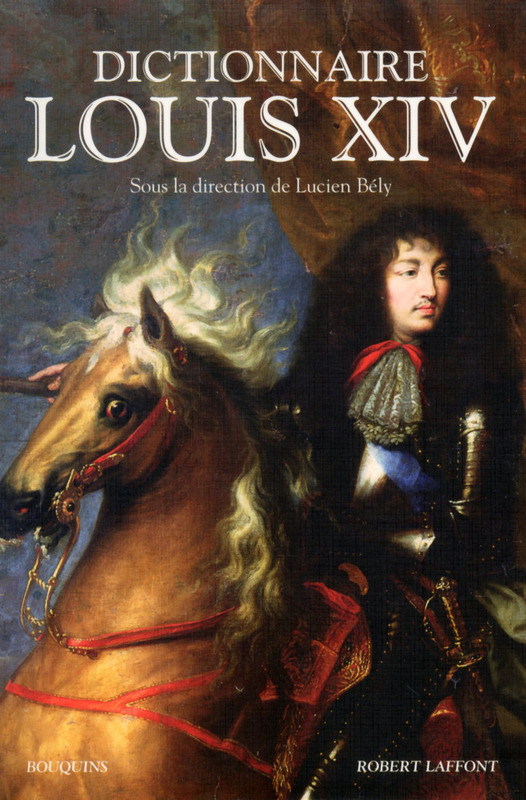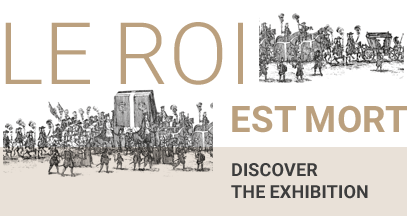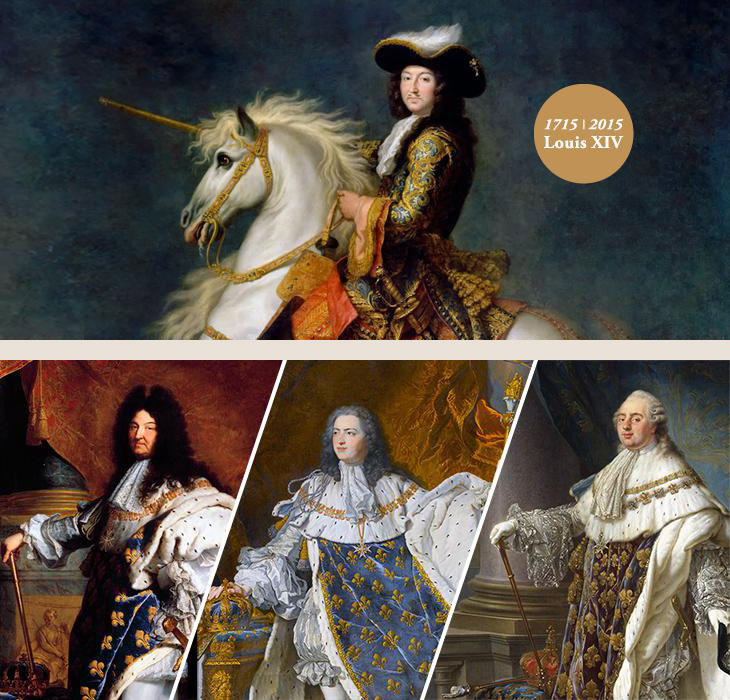The obituary notices to which you have escaped
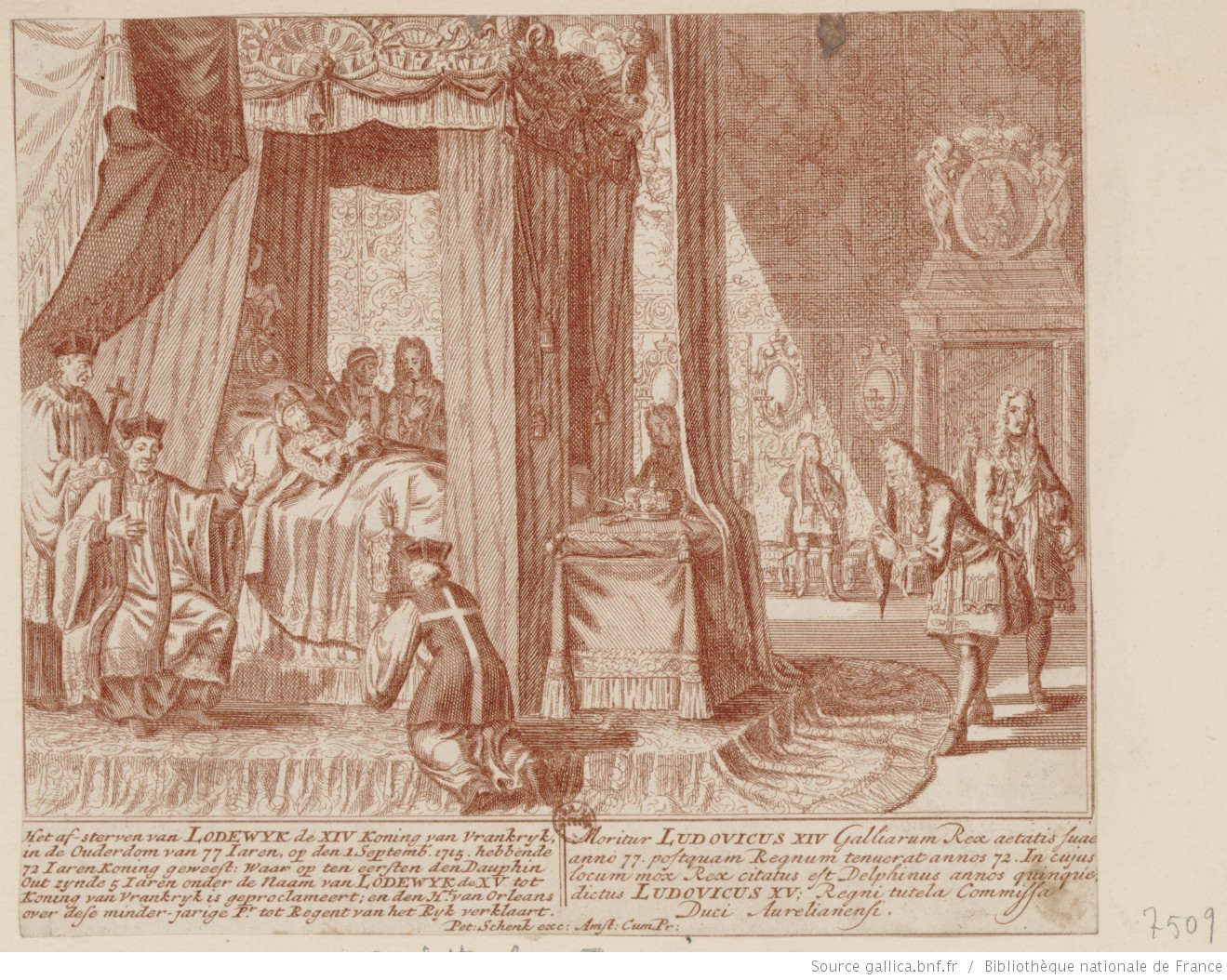
The king is dead! Long live the king!
Today, September 1st, 1715, King Louis XIV died at eight fifteen. He passed away quietly, like a candle being snuffed out. He died four days before his seventy-seventh birthday, in the seventy-third year of his glorious reign.
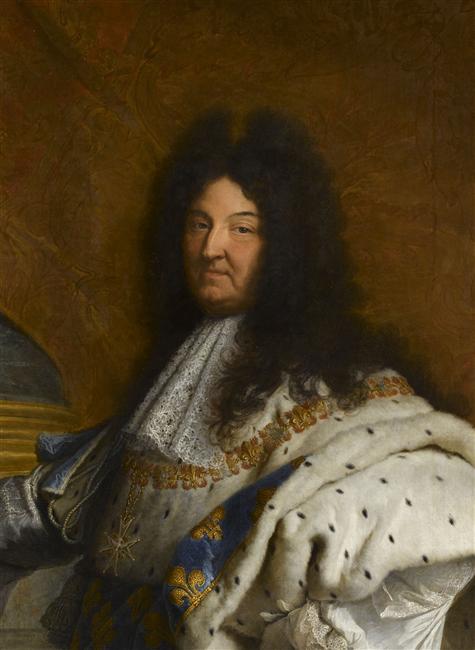 He did not suffer. He had received the Extreme Unction and the Viaticum, the last Eucharist. Up to his death, he continued to recite the prayers for the dying in a loud voice, repeating several times “Nunc et in hora mortis” [Now and at the hour of death]. Again he said: “O God, come to my assistance. Make haste to help me.” Thus, up to his last breath, the late monarch, my grandfather, prayed to God as he had his whole life. He never forgot that he was His Most Christian Majesty, and desired to conform his life to the laws that God gave us. He listened to the recommendations of our cardinals and bishops. He succeeded in ridding France of heresy and re-establishing the kingdom’s religious unity. He ensured the purity of the faith, and his remarkable vigilance led the Holy Father to issue a new condemnation of dangerous ideas spread by those with troubled minds. He faithfully followed the advice of his confessor, Father Le Tellier, of the Society of Jesus. All of these things are of infinite importance as he appears before our Saviour.
He did not suffer. He had received the Extreme Unction and the Viaticum, the last Eucharist. Up to his death, he continued to recite the prayers for the dying in a loud voice, repeating several times “Nunc et in hora mortis” [Now and at the hour of death]. Again he said: “O God, come to my assistance. Make haste to help me.” Thus, up to his last breath, the late monarch, my grandfather, prayed to God as he had his whole life. He never forgot that he was His Most Christian Majesty, and desired to conform his life to the laws that God gave us. He listened to the recommendations of our cardinals and bishops. He succeeded in ridding France of heresy and re-establishing the kingdom’s religious unity. He ensured the purity of the faith, and his remarkable vigilance led the Holy Father to issue a new condemnation of dangerous ideas spread by those with troubled minds. He faithfully followed the advice of his confessor, Father Le Tellier, of the Society of Jesus. All of these things are of infinite importance as he appears before our Saviour.
Louis XIV conquered great provinces and his kingdom encompasses new cities of which he can be proud. His subjects are more numerous and very obedient. They do not seek to contest royal authority, unlike what is taking place in neighbouring countries. They also have heard that the people of France has also, in turn, become a people chosen by God. Throughout the kingdom, statues and paintings proclaim the king’s great deeds. Louis XIV leaves behind a monarchy that is stronger and more perfect. He guarded the honour of the French name and the entire nation cannot help but mourn their king. He was a magnanimous victor when his armies achieved success. He courageously withstood defeat when enemies tried to overtake the kingdom. His steadfastness triumphed in the end: he kept all of his conquests and his grandson, the Catholic king, reigns in Spain and in the Americas. He made France formidable to its enemies and faithful to its allies to better protect his subjects. Throughout the entire universe, Louis XIV was considered the world’s greatest king. Today, his unfortunate death reminds us of the weakness of the human condition and that God alone is great.
Already Monseigneur the Duke of Orleans called me to come as the Grand Master of France to organize the late king’s funeral. He ordered us to follow what was done for King Louis XIII, avoiding great ceremonies that are the tradition when a sovereign dies in Paris. He ordered State secretaries to write to the bishops of France so that they might organise religious services, as well as to all the authorities to inform them of this very sad event.
All who wish may pay their last respects to the late king whose body may be viewed in his chambers. This morning, at ten o’clock, the Cardinal of Rohan, the great chaplain, sang the De profundis. Masses will be said until noon on two altars set up in the chambers, one in front of the fireplace, and the other on the opposite side. The doors will be closed at eight o’clock in the evening. Tomorrow the autopsy will take place, attended by the doctors of the Faculty of Paris, surgeons, and great dignitaries of the kingdom. Once the mortal remains have been placed in the coffin, it will be placed in the bedchamber in the Great apartments of Versailles. The entire royal chapel is summoned to say low masses.
Though we must mourn the death of such a great prince, we can only rejoice at having a new king: His Majesty, at fifty years of age, is in robust health and is of an excellent disposition. The late king provided for all of his education.
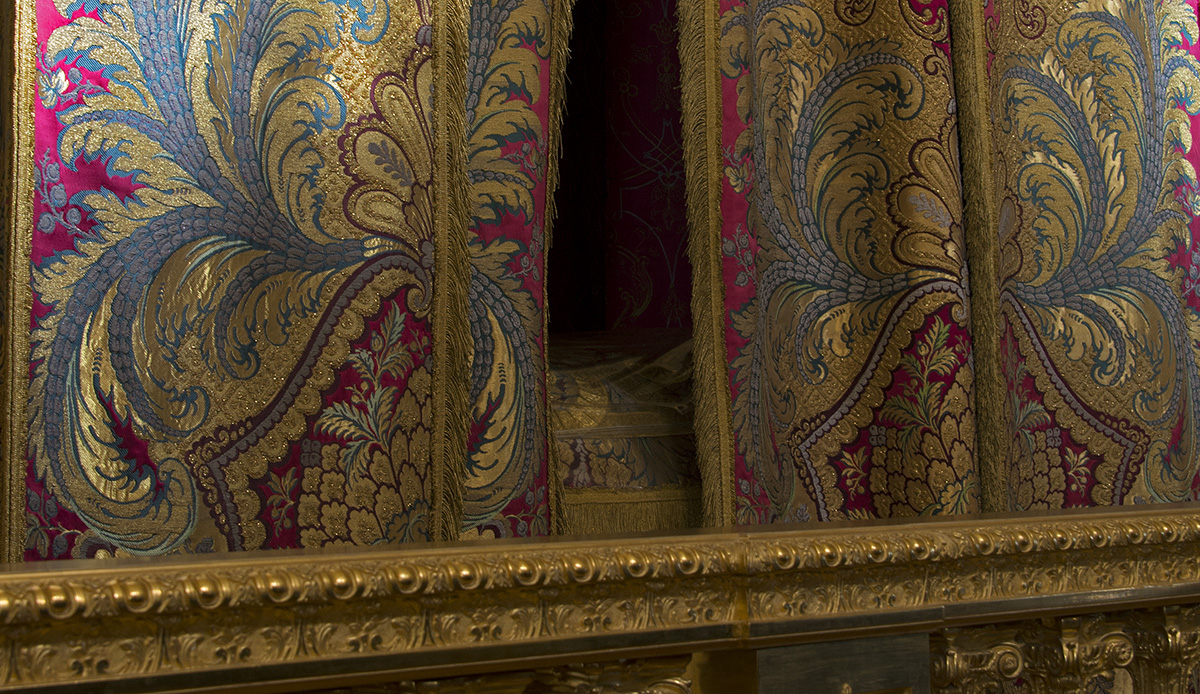
Our king will be able to depend on his uncle, Monseigneur the Duke of Orleans. Starting tomorrow, the great prince will go to the Parliament of Paris to hear the reading of the royal will. The late king confided that he would not find anything in the will that could inconvenience him: he will therefore ensure the regency for the happiness of the French people. He will find that the entire royal family is united behind him to support this precious child who is henceforth the king of France.
The king is dead! Long live the king!
Monseigneur the Duke of Bourbon, Grand Master of France
P.C.C. Lucien Bély
